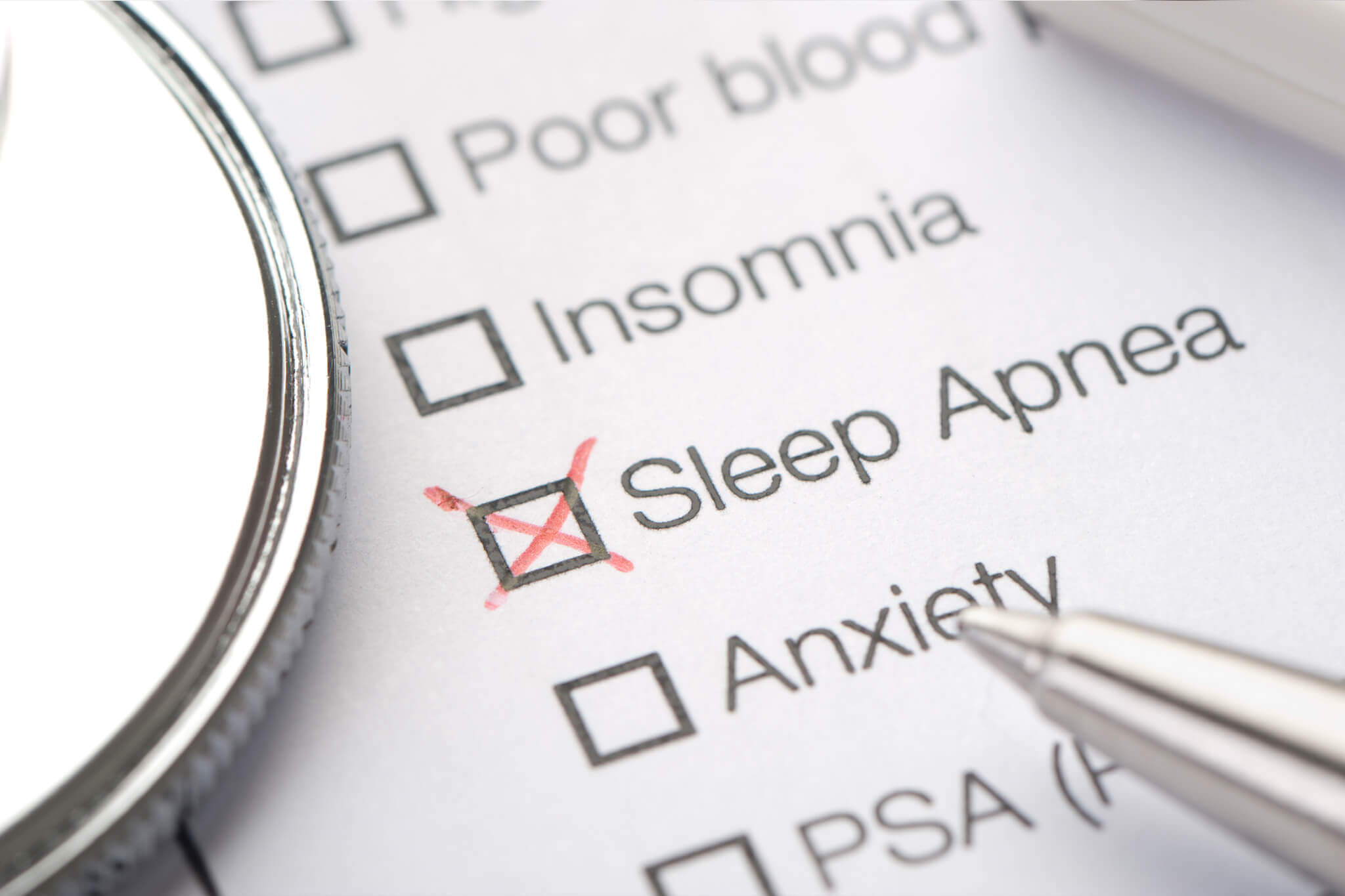Conditions We Treat
“A good night’s sleep can mean the difference between
facing the world with energy and enthusiasm – or dragging all day long.”
~ Dr. Ezenwa
There are a wide variety of sleep-related conditions. This includes disorders that affect your breathing, movement, or behavior during sleep, as well as the timing of your sleep – or your ability to sleep at all. Sleep disorders disrupt normal sleep-wake patterns, and can interfere with your daily physical, mental, social, and emotional functioning.
At MelioREM Sleep Clinic, we expertly evaluate, diagnose, and treat the full spectrum of sleep disorders, including:
There are two main types of sleep apnea: obstructive sleep apnea and central sleep apnea. The first involves an obstruction in the upper airway. The second involves improper signaling between the brain and muscles. Obstructive sleep apnea (OSA) is by far the more common.
Considered a serious sleep disorder, obstructive sleep apnea – often simply called sleep apnea – is the partial or complete blockage of the airway while you sleep. Sleep apnea occurs when muscles relax during sleep, causing tissue at the back of the throat (e.g., tongue, soft palate) to collapse and block the airway. This causes your breathing to momentarily stop – then restart with a gasp or snort. The cycle may recur up to hundreds of times per night. A person with sleep apnea does not fully awaken with each breathing cessation-and-restart, and thus remains unaware of the repetitive episodes as they occur.
The problem with sleep apnea is that the body is regularly deprived of adequate amounts of oxygen and vital organs can become damaged over time. Untreated sleep apnea can contribute to high blood pressure, heart disease, stroke, diabetes, and more.
Common signs and symptoms of sleep apnea include:
-
- Loud snoring
- Daytime sleepiness or fatigue
- Waking up tired
- Waking up with a headache and/or sore throat
- Gasping for air in your sleep
- Episodes of not breathing in sleep
- Hard time staying asleep (insomnia)
- Daytime sleepiness (hypersomnia)
- Decreased attention span
- Moodiness and irritability
A major predisposing factor is excess body weight, although individuals with a healthy body weight may develop this condition as well.
Sleep apnea can have a significant impact on a person's health. It leads to fatigue during the day and can also increase the risk of developing high blood pressure, heart disease, and other chronic conditions. In addition, sleep apnea can also cause cognitive problems, such as difficulty concentrating and decreased short-term memory recall.
Our experienced sleep specialist provides comprehensive sleep evaluation and management of your sleep-related complaints. Your management includes an initial evaluation, sleep testing if indicated, treatment, and long-term follow-up care to ensure the best outcomes for you.
At MelioREM Sleep Clinic, we help our patients manage sleep apnea. As a part of the treatment plan, we recommend weight management when appropriate for sleep apnea patients. We have found this practice to have the most long-lasting, positive impact on our patients’ health and well-being.

It manifests as trouble falling asleep, trouble staying asleep throughout the night, or waking up too early in the morning, despite having the opportunity to get a full night’s sleep. This sleep disorder can arise from a range of issues, including the psychological (e.g., stress or depression) and structural (e.g., breathing difficulties). The severity and symptoms of insomnia can vary from person to person.
Insomnia impacts almost every aspect of your life. Research has shown that it can impair your work performance, ability to make decisions, and damage relationships. People with insomnia report a decrease in their overall quality of life.

Restless leg syndrome is described as an uncontrollable urge to move the legs while at rest. Some people have difficulty describing the feeling of RLS because it is a nonspecific discomfort while at rest and is temporary relieved by moving the legs. Symptoms mostly occur in the late evening and could lead to difficulty falling asleep. In some cases, symptoms may be present all day long, making it difficult to sit still and impacting your ability to carry out your usual daytime activities. Some people with restless leg syndrome also experience generalized anxiety due to the incessant need to change the position of their legs.
Periodic Limb Movement Disorder (PLMD)
This is a repetitive, involuntary movement that occurs during the night, which can disrupt your sleep. The limb movements of PLMD can be severe enough to wake you or your bed partner, leading to daytime sleepiness and fatigue. In most cases, the individual with periodic limb movement disorder is not aware of the sleep disruption – thus, the sleep quality of the bed partner tends to be more adversely affected than that of the patient. The risk of periodic limb movement disorder increases with age.


Upper airway resistance syndrome is very common, but often goes undiagnosed. It involves the relaxing of soft tissue at the back of the throat, which narrows – but does not completely block – the upper airway. UARS causes your chest and diaphragm to have to work harder to pull air into the lungs while you’re asleep.
UARS may not cause snoring. Instead, a bed partner may notice heavy breathing due to the increased breathing effort during sleep. Just as with sleep apnea, if you have UARS, you may wake up feeling tired and experience significant daytime drowsiness, difficulty concentrating, headaches, and more.
Left untreated, the long-term consequences of UARS include high blood pressure, heart disease, stroke, weight gain, diabetes, depression, memory problems, and erectile dysfunction.
Narcolepsy is a chronic brain disorder characterized by uncontrollable excessive daytime sleepiness (EDS) that affects daytime activities.
Other signs and symptoms of narcolepsy may include:
- The brief and temporary inability to move or talk when falling asleep or waking up
- Vivid nightmares or hallucinations when falling asleep or waking up
- Sudden, transient muscle weakness during moments of intense emotion (e.g., anger, happiness, excitement)
Narcolepsy is dangerous if left untreated because the impromptu sleep attacks can occur at inappropriate times, such as at work, school, or while driving.
In addition, some narcoleptics experience cataplexy, a sudden muscle weakness brought on by a strong, positive emotional response in the body, such as with laughing. Cataplexy can be barely perceptible – e.g., the slackening of facial muscles, dropping of the jaw or head, or weakness at the knees – or something as obvious as a total body collapse. Often, the speech becomes slurred and vision impaired, but hearing and awareness remain normal. In rare cases, the muscles stiffen, and the body becomes temporarily paralyzed.
Narcolepsy is a particularly dangerous sleep disorder and needs to be treated by a sleep medicine specialist, such as the experts at MelioREM Sleep Clinic.
Obstructive Sleep Apnea: How It Affects You
Many people aren’t even aware they have sleep apnea — which is why undergoing a sleep evaluation is so important.
In addition to disrupting your sleep, obstructive sleep apnea increases your risk of developing a host of additional health problems, including:
- Daytime sleepiness & accidents. Daytime sleepiness, as the result of poor sleep, can lead to problems concentrating, reduced efficiency at work, and a greater likelihood of being in a workplace or car accident.
- Dementia. Sleep apnea is associated with an increased risk of cognitive impairment.
- Diabetes. Long-term effects of sleep apnea include an increased risk of developing insulin resistance and type 2 diabetes.
- GERD & acid reflux. Gastrointestinal disorders are much more common among people with sleep apnea.
- Heart problems. Obstructive sleep apnea is associated with a number of cardiovascular problems, including high blood pressure, cardiac arrhythmias, coronary artery disease, pulmonary arterial hypertension, and sudden death.
- Liver problems. Patients with sleep apnea are 2-3 times more likely to develop fatty liver disease, which can lead to inflammation and cirrhosis (scarring) of the liver.
- Obesity. Not getting enough quality sleep increases your cravings for high-calorie foods. Most people with obstructive sleep apnea tend to weigh 30% or more than their ideal body weight.
- Moodiness. Problems like moodiness, depression, anxiety, difficulty concentrating, and poor judgment are more common in people with sleep apnea.
- Nighttime urination. It is estimated that as many as half of all people with sleep apnea experience increased urinary urges throughout the night.
- Sexual dysfunction. Impotence and reduced libido occur in many middle-aged patients with sleep apnea. This affects both men and women.
- Snoring. Loud snoring is very common among people with sleep apnea, and can be problematic for their sleep partners.
- Stroke. Men with sleep apnea are three times as likely to have a stroke.
Seeking help for obstructive sleep apnea can help you stay healthy in the long term, which can also significantly reduce your healthcare costs.
Sleep Disorders We Diagnose & Treat
If you or loved one is experiencing symptoms of a sleep disorder, the sleep medicine experts at MelioREM Sleep Clinic can help. Call us in Reno Sparks, Nevada, at (775) 557-4900 or request an appointment now. We offer both in-person and telehealth appointments that way you can reach us no matter where you are. Our vast patient community stretches all the way to Elko County, providing our medical services in all corners of Nevada.
When you improve your sleep, you improve your life. At MelioREM Sleep Clinic, help is just a phone call away.






